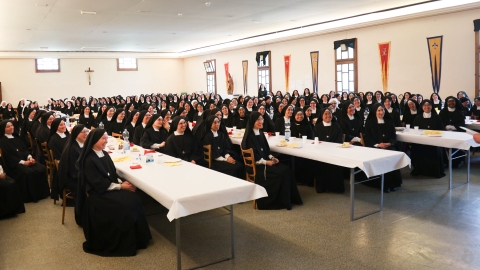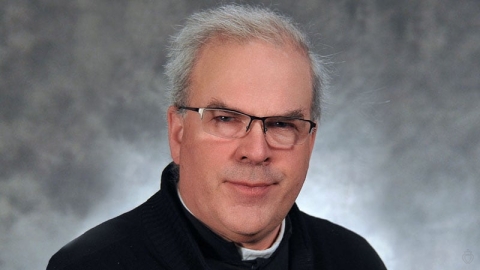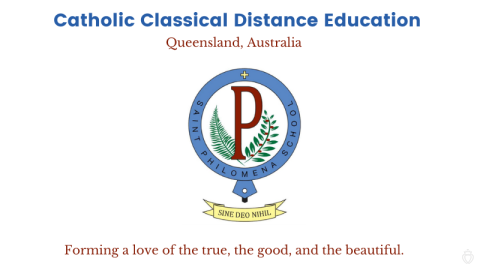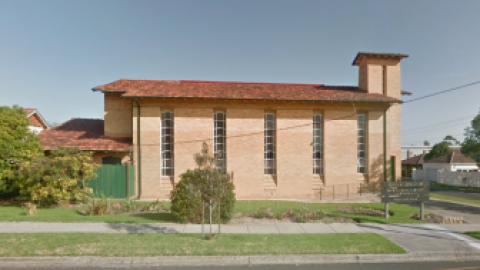Contradictory Reaction to Cardinals' Dubia

Bishop Schneider, who has published a letter supportive of the 4 cardinals
The confusion following Amoris Laetitia is reaching fever pitch, with prelates now publicly taking opposing opinions.
In September, Cardinals Walter Brandmüller, Raymond Burke, Carlo Caffarra, and Joachim Meisner wrote to the Pope asking him to answer five yes-or-no questions (dubia) that would dispel what they called the “uncertainty, confusion, and disorientation among many of the faithful” stemming from the exhortation Amoris Laetitia.
Pope Francis' interview with Avvenire, the newspaper of the Italian bishops, gave an indirect response to the cardinals' dubia, chiding those Catholics who only think in “black and white, even if in the flux of life you must discern.”
In Defense of the Four Cardinals
Bishop Athanasius Schneider came out in support of the four cardinals by publishing in Rorate Caeli an article entitled, “A Prophetic Voice of Four Cardinals of the Holy Roman Catholic Church.” Here is an extended excerpt.
In publishing a plea for clarity in a matter that touches the truth and the sanctity simultaneously of the three sacraments of Marriage, Penance, and the Eucharist, the Four Cardinals only did their basic duty as bishops and cardinals, which consists in actively contributing so that the revelation transmitted through the Apostles might be guarded sacredly and might be faithfully interpreted. It was especially the Second Vatican Council that reminded all the members of the college of bishops as legitimate successors of the Apostles of their obligation, according to which ‘by Christ's institution and command they have to be solicitous for the whole Church, and that this solicitude, though it is not exercised by an act of jurisdiction, contributes greatly to the advantage of the universal Church. For it is the duty of all bishops to promote and to safeguard the unity of faith and the discipline common to the whole Church’” (Lumen gentium, 23; cf. also Christus Dominus, 5-6).
“The negative reactions to the public statement of the Four Cardinals resemble the general doctrinal confusion of the Arian crisis in the fourth century. It is helpful to all to quote in the situation of the doctrinal confusion in our days some affirmations of Saint Hilary of Poitiers, the ‘Athanasius of the West’.
‘I have spoken what I myself believed, conscious that I owed it as my soldier’s service to the Church to send to you in accordance with the teaching of the Gospel by these letters the voice of the office which I hold in Christ. It is yours to discuss, to provide and to act, that the inviolable fidelity in which you stand you may still keep with conscientious hearts, and that you may continue to hold what you hold now’ (Hil. De Syn., 92).“Today those bishops and cardinals, who ask for clarity and who try to fulfill their duty in guarding sacredly and faithfully interpreting the transmitted Divine Revelation concerning the Sacraments of Marriage and the Eucharist, are no longer exiled as it was with the Nicene bishops during the Arian crisis.
“When Pope Liberius in 357 signed one of the so called formulas of Sirmium, in which he deliberately discarded the dogmatically defined expression “homo-ousios” and excommunicated Saint Athanasius in order to have peace and harmony with the Arian and Semi-Arian bishops of the East, faithful Catholics and some few bishops, especially Saint Hilary of Poitiers, were deeply shocked…. Pope Liberius wanted to have peace and harmony at any price, even at the expense of the Divine truth. [Saint Hilary answered:]
‘We don’t make peace at the expense of the truth by making concessions in order to acquire the reputation of tolerance. We make peace by fighting legitimately according to the rules of the Holy Spirit. There is a danger to ally surreptitiously with unbelief under the beautiful name of peace.’ (Hil. Ad Const., 2, 6, 2).
“The Four Cardinals with their prophetic voice demanding doctrinal and pastoral clarity have a great merit before their own conscience, before history, and before the innumerable simple faithful Catholics of our days, who are driven to the ecclesiastical periphery, because of their fidelity to Christ’s teaching about the indissolubility of marriage. But above all, the Four Cardinals have a great merit in the eyes of Christ. Because of their courageous voice, their names will shine brightly at the Last Judgment. For they obeyed the voice of their conscience remembering the words of Saint Paul: “We cannot do anything against the truth, but only for the truth (2 Cor 13: 8).
May all, who in our days still take seriously their baptismal vows and their priestly and episcopal promises, receive the strength and the grace of God so that they may reiterate together with Saint Hilary the words: “May I always be in exile, if only the truth begins to be preached again!” (De Syn., 78).
Polish bishop Józef Wróbel, auxiliary bishop of Lublin, also offered support for the cardinals in an interview with the Italian La Fede Quotidiana.
The four Cardinals did well in asking for clarification about Amoris Laetitia. It is evidently necessary to answer them.
“They [the Cardinals] did well and have exercised correctly what Canon Law provides for. I think it is not just a right, but moreover a duty.
“It would be just to respond to their observations.” A response, he added, would be also a matter of charity. “The primacy of charity begins with those that are closest.”
Bishop Jan Watroba, President of the Council for the Family of the Polish Bishops’ Conferences, declared that he believes that the publication of the four cardinals’ letter is “not reprehensible.” According to the Catholic newspaper Die Tagespost, Watroba sees in this letter “an expression of the commitment and care concerning the right interpretation of the teaching of Peter.”
Watroba spoke these words to the Polish News Agency (KAI).
It is too bad that there exists no unified interpretation and no clear message of the document [Amoris Laetitia] and that one has to add interpretations to the Apostolic document. I personally – perhaps out of habit, but also out of conviction – prefer such documents, as John Paul II used to write them, where additional commentaries or interpretations concerning the teaching of Peter were not necessary.”
Cardinal Pell, Prefect of the Secretariat for the Economy and member of the Pope’s “C9” group of advisors, said that he thought the cardinals' five dubia to the Holy Father were "significant." He gave these comments during a visit to London to deliver a lecture on St. Damien of Molokai as part of the St. Patrick Soho series of talks for the Year of Mercy. During his lecture, Cardinal Pell touched upon the problems caused by a false understanding of conscience, a moral issue raised by the fifth dubium submitted to Pope Francis for clarification.
Here is a summary of Pell’s remarks from The Catholic Herald:
Cardinal Pell said that emphasizing the 'primacy of conscience' could have disastrous effects, if conscience did not always submit to revealed teaching and the moral law. Cardinal Pell quoted Blessed John Henry Newman’s writings on conscience, in which Newman rejected a 'miserable counterfeit' of conscience which defines it as 'the right of self-will'. He noted that Newman was defending Popes Pius IX and Gregory XVI, who in Cardinal Pell’s words, 'condemned a conscience which rejected God and rejected natural law.' "
As the Code of Canon Law (Can. 212 §3) stipulates about the College of Cardinals:
According to the knowledge, competence, and prestige which they possess, they have the right and even at times the duty to manifest to the sacred pastors their opinion on matters which pertain to the good of the Church and to make their opinion known to the rest of the Christian faithful, without prejudice to the integrity of faith and morals, with reverence toward their pastors, and attentive to common advantage and the dignity of persons.”

Newly minted Chicago Cardinal Blase Cupich, a defender of Amoris Laetitia
Hush-up Strategies and Slander Campaigns
The negative reactions to the public statement of the Four Cardinals resemble the general doctrinal confusion of the Arian crisis in the fourth century… Contrary to the time of the Arian crisis, today, …exile of the bishops is replaced by hush-up strategies and by slander campaigns.”
Bp. Schneider
New American Cardinal Joseph Tobin strongly criticized the "troublesome" request of the four cardinals. Recently named to be the archbishop of Newark, Tobin told The Tablet before the November consistory that the cardinals' concerns about Amoris Laetitia are "at best naive" and hinted that they might be comparable to the Arian heresy of the fourth century!
Newly minted Chicago Cardinal Blase Cupich gave the following remarks to reporters days after Pope Francis elevated him to the College of Cardinals:
The Holy Father doesn’t have to, in any way, defend a teaching document (Amoris Laetitia) of the Church. It’s up to those who have doubts and questions to have conversion in their lives . . . it’s a moment for anyone who has doubts to examine how they got to that position because it is a magisterial document of the Catholic Church.”
Fr. Antonio Spadaro, SJ, the Pope's "mouthpiece" and editor of the influential Jesuit journal La Civiltà Cattolica used the social-media outlet Twitter to attack the four cardinals who had submitted the dubia to Pope Francis. In a frenetic use of the forum, he published various Tweets, then deleted them and replaced them. For instance, Spadaro tweeted, “Amoris Laetitia is an act of Magisterium . . . so don’t keep asking the same question until you get an answer.”
Cardinal Christoph Schönborn claimed that the four cardinals’ letter is “an attack on the pope,” because the cardinals “have to obey the pope.” As the French website Riposte Catholique commented on Nov. 21: “To request a clarification is thus from now on already a form of disobedience[.]”
Fragkiskos Papamanolis, the bishop emeritus of Syros, Santorini, and Crete, and head of the Greek Bishops Conference, has written an open letter to the four cardinals. In it he hurled charges of apostasy, sacrilege, heresy, and schism:
I fear that your mental categories will find sophisticated arguments to justify your work, so as not even to consider it a sin to be subjected to the Sacrament of Penance, and that you continue to celebrate every day the Holy Mass and to receive sacrilegiously the Sacrament of the Eucharist, while you are scandalized if, in specific cases, a divorced and remarried person receives the Eucharist, and you dare to accuse the Holy Father Francis of heresy.”
On 25 November, 2016, Brazilian Cardinal Cláudio Hummes—who is a close friend of Pope Francis—gave an interview to Religion Digital. In this interview, the former Archbishop of São Paulo commented on the recent dubia. In his comments, Hummes diminished the weight and importance of the cardinals’ query. “Without wishing to relativize this fact [of the Dubia] …. but these are only four cardinals. In the Church, we are more than 200 [cardinals].” Hummes continued his defense of the pope with the following remarks:
The pope could be wounded by the motives which led these four persons to go so far as to want to correct him. But, he is very calm, relaxed, and moves forward. He knows which is the right path that one has to follow. And the College of Cardinals is with him, without any larger problems. The whole College of Cardinals is with him.”
(Guiseppe Nardi in Katholisches.info)
Monsignor Pio Vito Pinto, Dean of the Roman Rota, the highest canonical court responsible for marriage in the Catholic Church, was reported by the news agency Religión Confidencial to have said in an interview that Pope Francis might strip the four cardinals of their red hats.
“Which Church do these Cardinals defend?” Pinto reproaches. “The Pope is faithful to the doctrine of Christ.”
What they have done is a very serious scandal that could lead the Holy Father to remove them from the Cardinalate, as it has sometimes happened in Church history.
“The action of the Holy Spirit cannot be doubted. . . . [The Cardinals] question not one synod but two: the ordinary and the extraordinary.”
Several days later the newspaper issued a restraction, stating it had “put words into the mouth of Mons. Pio Vito Pinto regarding the statement that the four cardinals who have written the Pope ‘could lose their cardinalate.’” However, a full transcript of Pinto’s interview has yet to be released.
Crisis and Polarization
In the wake of this controversy, Cardinal Gerhard Ludwig Müller, Prefect for the Congregation of the Doctrine of the Faith (CDF), told Kathpress that the CDF would not respond to the dubia—for now. Moreover, the Prefect warned about growing polarization and conflict in the Catholic Church: “At the moment it is important for each one of us to stay focused and objective and not to be driven into polemics, much less create them.”
However, Müller did make clear that new ecclesial documents cannot contradict either prior papal teaching or clarifications issued by the CDF. He went on to cite a 1994 CDF letter to three German bishops written by Cardinal Joseph Ratzinger stating that they could not permit divorced and civilly remarried Catholics to receive Holy Communion.
40 years ago, Archbishop Lefebvre
The open attacks on the four cardinals for sending the dubia to Pope Francis are eerily similar to that which Archbishop Lefebvre faced 40 years ago. In the midst of unimaginable turmoil and confusion, the Archbishop took a stand for Tradition over-and-against the forces of neo-modernism, writing several letters directly to the pope. After these letters, he famously made a public declaration on November 21, 1974.
The Archbishop maintained the Tridentine Mass and the Thomistic formation in the training of his seminarians, while questioning the rank innovations that had been introduced into the Church following the Second Vatican Council. Because of this, many churchmen, including Pope Paul VI, accused Archbishop Lefebvre of betraying the Church and sowing the seeds of disunity. Here are Paul VI’s unjust words:
You have no right to oppose the Council; you are a scandal for the Church, you destroy the Church. It is horrible, you raise up Christians against the Pope and against the Council. Do you feel nothing in your conscience that condemns you?”
Despite this Roman opposition, Archbishop Lefebvre stood strong for the truth; despite the disputed suppression of his Society and the canonical sanctions again him. In response, the Archbishop stated, “I’m carrying on what I have always done.” And further:
Rome has blocked all solutions; there is no sign of openness. In Rome they are awaiting my reply. Well, I think that the only response is in action. We reply by the existence of the seminary. And I will continue to travel throughout Europe and across the world to enlighten people and give them valid sacraments. ‘Omnia instaurare in Christo’: To establish and restore all things in Christ."
We wish the same grace to the four cardinals and those who support them. May their courageous stand for the defense of the morals obtains them the light to see the root of the matter denounced 50 years ago by the one who was justly called the Athanasius of the 20th century.





